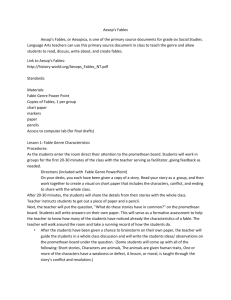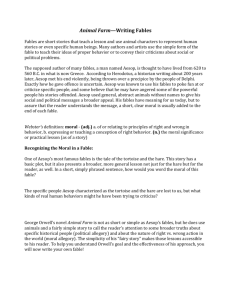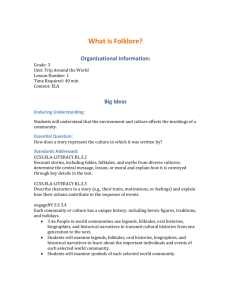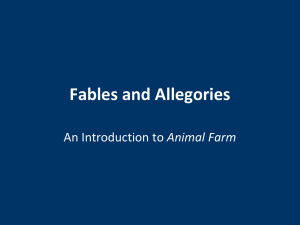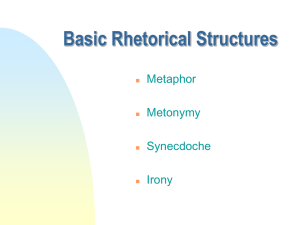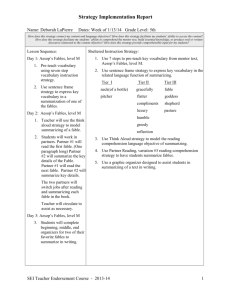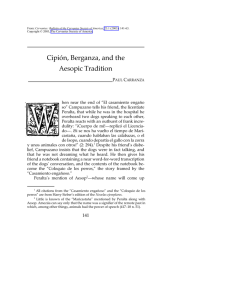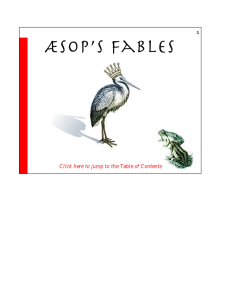Animal Farm—Writing Fables
advertisement
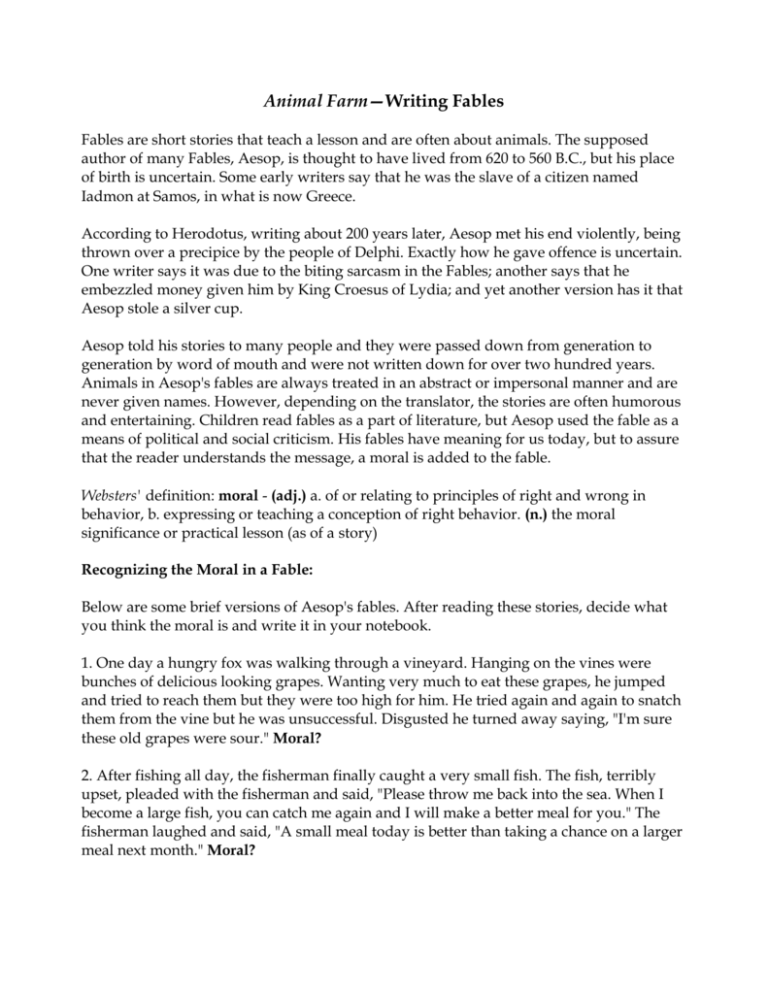
Animal Farm—Writing Fables Fables are short stories that teach a lesson and are often about animals. The supposed author of many Fables, Aesop, is thought to have lived from 620 to 560 B.C., but his place of birth is uncertain. Some early writers say that he was the slave of a citizen named Iadmon at Samos, in what is now Greece. According to Herodotus, writing about 200 years later, Aesop met his end violently, being thrown over a precipice by the people of Delphi. Exactly how he gave offence is uncertain. One writer says it was due to the biting sarcasm in the Fables; another says that he embezzled money given him by King Croesus of Lydia; and yet another version has it that Aesop stole a silver cup. Aesop told his stories to many people and they were passed down from generation to generation by word of mouth and were not written down for over two hundred years. Animals in Aesop's fables are always treated in an abstract or impersonal manner and are never given names. However, depending on the translator, the stories are often humorous and entertaining. Children read fables as a part of literature, but Aesop used the fable as a means of political and social criticism. His fables have meaning for us today, but to assure that the reader understands the message, a moral is added to the fable. Websters' definition: moral - (adj.) a. of or relating to principles of right and wrong in behavior, b. expressing or teaching a conception of right behavior. (n.) the moral significance or practical lesson (as of a story) Recognizing the Moral in a Fable: Below are some brief versions of Aesop's fables. After reading these stories, decide what you think the moral is and write it in your notebook. 1. One day a hungry fox was walking through a vineyard. Hanging on the vines were bunches of delicious looking grapes. Wanting very much to eat these grapes, he jumped and tried to reach them but they were too high for him. He tried again and again to snatch them from the vine but he was unsuccessful. Disgusted he turned away saying, "I'm sure these old grapes were sour." Moral? 2. After fishing all day, the fisherman finally caught a very small fish. The fish, terribly upset, pleaded with the fisherman and said, "Please throw me back into the sea. When I become a large fish, you can catch me again and I will make a better meal for you." The fisherman laughed and said, "A small meal today is better than taking a chance on a larger meal next month." Moral? 3. A crow snatched a piece of cheese and flew with it into a tree. She was about to take a bite when a fox saw her and called out. "Good morning, beautiful crow. How lovely you look today! Your eyes and feathers are beyond compare and I'm sure your voice is as beautiful as you are. Please sing just one song for me," he pleaded. The foolish crow was flattered and she lifted her head, opened her mouth, and began to caw. The cheese immediately fell from her mouth only to be snatched up by the sly fox. Moral? Writing Your Own Fable Write a fable of your own. Use animal characters to illustrate human traits, and be sure there is a lesson to be learned. Write your fable in pen on lined paper or word process. You must also include an illustration for your fable. Be sure to edit for spelling and grammatical errors. Finally, include the moral of your fable at the end. Your fable should be in the following format: Make sure your name appears somewhere on your fable. Word process (double space) or neatly write in pen on one side of the paper, skipping lines. Your fable can be as funny as you wish. It should have a moral, as all fables do. On the back of your final copy, please write the moral to your fable. Your fable should include dialogue between whatever animals are involved in the story. The length of the fable is up to you, but fables that show obvious effort and attention will receive a better score. If you choose, you can write your fable in picture book form. Your fable will be due in class on Monday, December 9th. We may share them aloud, so be prepared!
